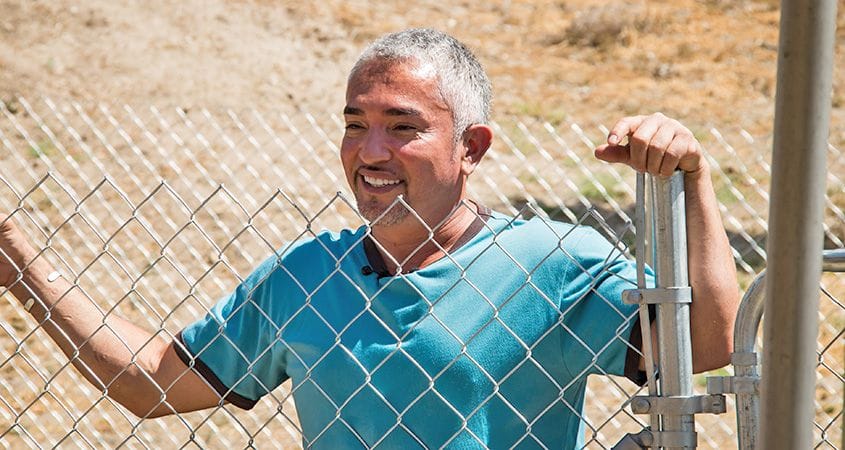Everybody has something they’re good at and other things they’re not good at. A person who can easily learn new languages might be terrible at math; a master chef might understand nothing about car repair; a star football player might not be able to balance a check book.
For those particular things that come easy to each of us, they’re a joy to do. Every artist is happiest when they’re creating their art, but it’s not limited to creative pursuits. Somebody who is really good at organizing, or accounting, or detailing cars also really enjoys what they’re doing because it’s simple for them.
And, of course, the things that we’re not good at can become terrifying ordeals, which leads to a vicious cycle. We think we’re not good at it, we hate doing it so we don’t get better at it, and so on. I’ve seen this happen with people and their dogs plenty of times, but it doesn’t have to be that way.
Fortunately, not all of us need to be multilingual to succeed (or know calculus or quadratic equations.) But there are certain things we do need to be good at if we want to get along well in life: time management, basic budgeting and finance, relationships, and whatever skills we need to make a living.
If we agree to bring a dog into our lives, like it or not we have to learn how to be good at bringing balance and harmony to that relationship. Far too often, though, and particularly for first-time dog owners or people who adopt dogs with issues, it doesn’t come easily. The dog comes into the house, it misbehaves, the humans try whatever they think will work — which usually involves shouting at the dog — and the whole thing becomes a disaster.
Getting rid of the dog should only ever be an option of last resort. This means that for owners with misbehaving dogs, the onus is on them. They can’t abandon rehabilitating and training a dog like they did their math or history classes. This is a challenge if they think they’re really bad at it for all the reasons I mentioned above, but it’s not impossible.
Here’s why.
The only reason that people are bad at something is because they think they are.
Humans are experts at creating self-fulfilling prophecies. If you’re constantly telling yourself, “Oh, I’m no good at that because it’s stupid,” then you’ll never become good at that. And, because you associate “that” with a weakness in yourself, you’ll try to avoid it as much as possible. That’s how human psychology works.
But… if you flip the script, you can change the outcome. Instead of telling yourself, “I’m no good at that,” tell yourself, “I am going to figure that out.” Instead of the subject at hand being an obstacle, see it as a game that you have to figure out how to win.
Here’s the other important part: in this game, your only opponent is you. You aren’t running a race against people who are better at it, and you’re certainly not trying to become an Olympic gold medalist. Every victory in this game is personal and all yours.
So you’ve adopted a dog and she’s having behavioral issues and you’re not seeing any progress no matter what you do. This is no reason to give up! Some people are naturally good at learning how to find balance with their dogs, while others are not. But being not naturally good at something does not mean not being able to do something at all.
If you’re an amateur marathon runner, it would be ridiculous to compare your speeds with the world champion. All that would accomplish is making you feel completely inadequate. Likewise, you shouldn’t compare your progress with your dog with what I do or with what any other behaviorist or trainer does. In this race, your only opponent is yourself.
When it comes to moving forward, the biggest roadblocks are the ones that you put there. The good news is that these roadblocks are very easy to remove. They begin with changing your attitude from “I can’t do that” to “I am going to do this,” and then progressing one step at a time, with you deciding how big a step is success.
It may be as simple as getting your dog to sit one out of ten times that you ask, or as ambitious as deciding you will have a perfect walk today and getting it. But each step along the way is a step toward mastery. The only thing holding you back at mastering something you think you’re not good at is your belief that you’re not good at it.
Relax, step back, and then play the game to win — on your terms.
Stay calm, and go do this!











